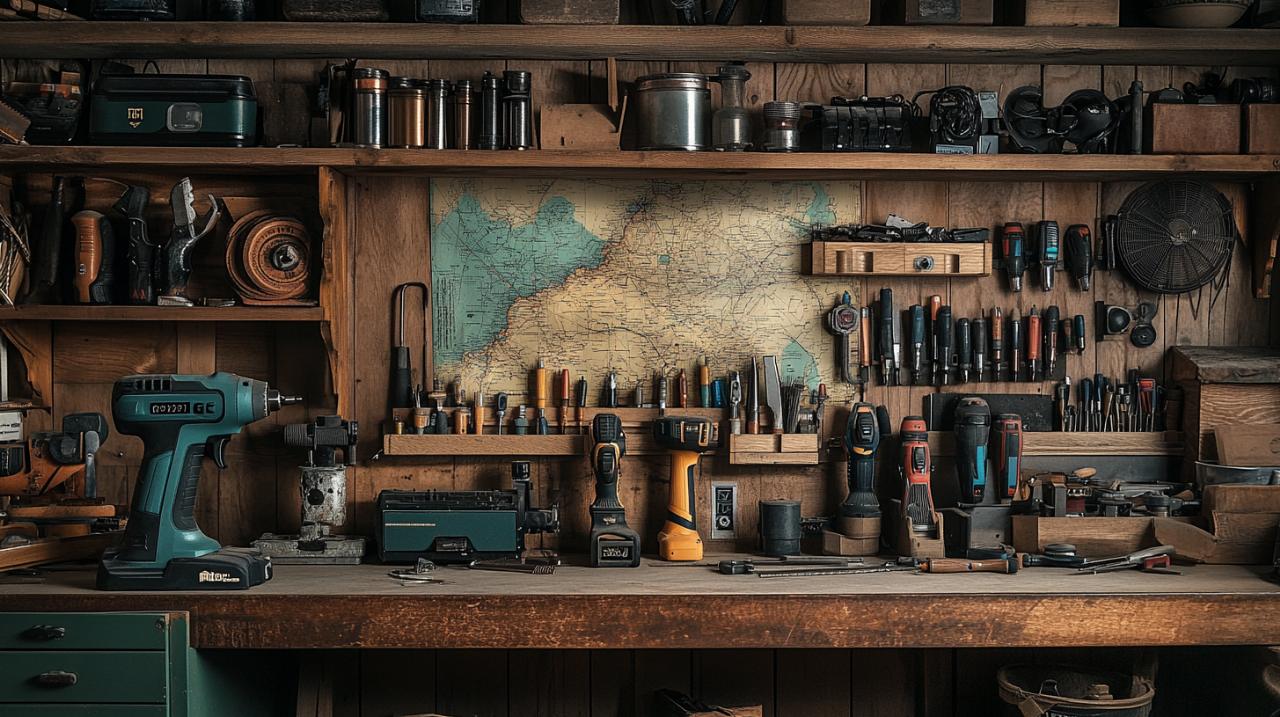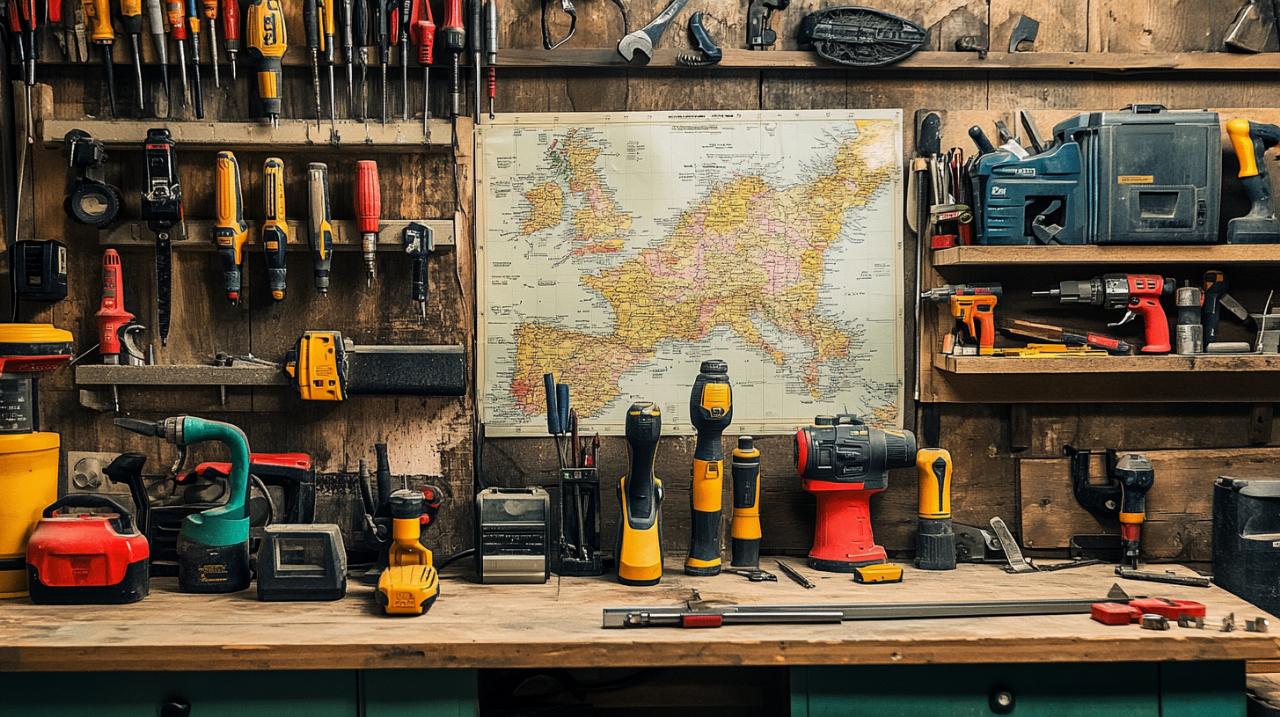For anyone relocating across the Channel or undertaking a substantial home improvement project in France, the hunt for reliable power tools and the subsequent quest for replacement components can feel like a bit of an ordeal. Whether you’re setting up a workshop in a rural French property or simply tackling weekend tasks, understanding where to find quality equipment and how to source the necessary spares becomes essential. The French market offers a diverse range of options, from familiar international brands to local suppliers, each with distinct advantages and considerations worth exploring.
Selecting the Proper Power Tools for Your Needs in France
When contemplating which power tools to invest in, the decision often hinges on balancing cost, performance, and long-term reliability. Many professionals and serious DIY enthusiasts favour established names such as Makita and Bosch, particularly the Pro range, for their robust construction and consistent performance. These brands have earned their reputation through years of dependable service, and their brushless motors deliver improved efficiency and longevity compared to older technology. For those on a tighter budget or engaging in lighter tasks, brands like Einhell, Ryobi, and Black & Decker present viable alternatives that won’t break the bank while still handling everyday jobs. It’s worth noting that sticking to a single battery system across your toolkit simplifies matters considerably, allowing you to share batteries and chargers among multiple devices. This approach not only reduces clutter but also proves more economical over time, as you won’t need to purchase separate power packs for each tool. Some enthusiasts have even discovered that battery adapters, including certain 3D printed versions, can bridge the gap between different manufacturers, though compatibility and safety should always be verified before experimenting with such solutions. When making your purchasing decision, it’s also sensible to check out ofertaplus website and similar platforms for competitive pricing and special offers. French online retailers such as ManoMano and Cdiscount frequently run promotions, especially around Christmas sales periods, which can result in substantial savings. Comparing these prices with UK outlets like powertoolworld.co.uk or clickoutil.com helps ensure you’re getting the best value, particularly if you’re willing to shop across borders. Bear in mind that tool prices can vary significantly between France and the UK, so a bit of research before committing to a purchase pays dividends. Whether you’re after DeWalt power tools, cordless power tools, or Milwaukee tools, taking the time to compare offerings from multiple sources ensures you won’t overpay for quality equipment.
Understanding voltage requirements and compatibility
One crucial factor that often catches people off guard is the difference in electrical standards between countries. France operates on a 230V system, which matches the UK standard, so most British tools will function without issue once fitted with the appropriate plug. However, if you’re bringing equipment from the United States or other regions with different voltage standards, converters become necessary, and these can be cumbersome and unreliable for high-draw power tools. Simple adapter plugs might seem like a quick fix, but they pose earthing issues that compromise both safety and performance. Properly changing the plug on UK tools to match French sockets is straightforward and eliminates these concerns entirely. When moving to France, some people choose to sell their existing tools at a car boot sale and purchase new ones locally, ensuring full compatibility and simplifying warranty claims. This approach also means you’ll have access to local support networks and spare parts availability, which proves invaluable should anything go wrong. For those renovating French homes, especially older properties, selecting tools suited to working with traditional materials becomes particularly important. Researching the construction methods and materials used in the original building helps inform your tool choices, ensuring you achieve an authentic renovation that respects the property’s character. Whether you’re handling stone, timber, or plaster, having the right equipment makes all the difference in both the quality of your work and the time required to complete it.
Navigating french diy shops and bricolage stores
France boasts a widespread network of DIY shops, often referred to as bricolage stores, which stock an extensive range of tools and building supplies. These outlets are comparable to familiar UK chains like B&Q or Screwfix, offering everything from basic hand tools to sophisticated cordless power tools and accessories. Visiting these stores in person allows you to assess the build quality, weight, and ergonomics of tools before purchasing, which can be particularly helpful when choosing between similar models. The staff at these shops often possess practical experience and can provide valuable advice on which products best suit your specific requirements. Beyond tools, French DIY stores also stock building materials, though it’s worth noting some differences in product offerings compared to the UK. For instance, lining paper for walls is not typically used in France, with a fibrous mesh liner preferred instead, and primer is less common, with diluted undercoat being the favoured alternative. Good quality French paint can be rather pricey, and interior paints sometimes feel thinner than their UK equivalents, so adjusting your expectations and techniques accordingly helps avoid disappointment. Plumbing materials, on the other hand, can prove cheaper than in the UK, which is a pleasant surprise for anyone undertaking bathroom or kitchen renovations. French cement mixers tend towards lighter construction, which suits occasional use but may not withstand the rigours of heavy, continuous work. Hand tools such as spades and shovels differ too, typically featuring straight handles without the cross-piece common on British designs, though you quickly adapt to the slightly different feel. For larger projects requiring scaffolding, French systems come in modular units, often mounted on wheels, and hiring these proves more practical than purchasing outright. Budget brands like Parkside tools, available primarily through Lidl, offer excellent value for money and are popular among those seeking cost-effective solutions for infrequent tasks. While these tools may not match the durability of professional-grade equipment, they serve admirably for light DIY and general home maintenance.
Sourcing replacement parts and spares across france

Even the most reliable power tool eventually requires maintenance or replacement components, making it essential to understand where and how to obtain spares in France. Ensuring that parts are readily available before committing to a particular brand or model saves considerable frustration later, especially if you depend on your tools for ongoing projects or professional work. Major manufacturers typically maintain comprehensive parts catalogues and support networks, but the ease of accessing these resources varies depending on the brand and your location within France.
Utilising manufacturer websites and specialist repair shops
The first port of call when seeking replacement parts should always be the manufacturer’s official website. Most reputable brands, including Bosch, Makita, DeWalt, and Einhell, provide detailed parts diagrams and ordering systems that allow you to identify and purchase exactly what you need. These sites often include compatibility information, ensuring you select the correct component for your specific tool model. For more complex issues or if you’re uncertain about the diagnosis, specialist tool repair shops scattered throughout France offer expert assessment and service. These establishments employ technicians who genuinely know their onions, possessing deep knowledge of various brands and models. They can often source obscure parts or suggest suitable alternatives when original components are unavailable or prohibitively expensive. Building a relationship with a local repair shop proves invaluable, particularly if you maintain a large collection of tools or undertake frequent renovation work. Beyond official channels, online marketplaces and forums provide additional avenues for finding spare parts. Websites focusing on power tool world commerce, such as hagglezone, facilitate price comparisons and connect buyers with sellers across Europe, sometimes uncovering better deals than official sources. Battery compatibility remains a particular concern, as manufacturers increasingly market tools without batteries and chargers, expecting customers to build a compatible ecosystem. This practice can initially seem frustrating, but it ultimately reduces costs once you’ve established your preferred battery platform. Some users have reported issues with specific models, such as switch problems on certain Einhell angle grinders, though manufacturers generally address such defects in subsequent production runs. When purchasing replacement parts, always verify they’re genuine or approved equivalents to maintain both performance and safety standards. Counterfeit components may seem tempting due to lower prices, but they often lack the quality control and durability of authentic parts, potentially compromising your safety and the tool’s longevity.
Maximising warranty coverage and cost savings
Before purchasing any power tool, carefully examine the warranty terms and ensure that coverage extends to France if you’re buying from a UK retailer. Some warranties only apply in the country of purchase, leaving you without recourse should a fault develop after crossing borders. Conversely, buying tools within France guarantees local warranty support, simplifying the process of claiming repairs or replacements. This consideration becomes particularly important for expensive professional-grade equipment where repair costs could approach the price of a new tool. Many retailers offer extended warranty options for an additional fee, which can prove worthwhile for tools you’ll use intensively or rely upon for income-generating work. When evaluating warranty options, read the fine print regarding what’s covered and what exclusions apply, as terms vary significantly between brands and retailers. Regular maintenance extends tool life and reduces the likelihood of unexpected failures. Keeping batteries charged correctly, cleaning dust and debris from vents, and storing equipment in dry conditions all contribute to longevity. For battery-powered tools, following the manufacturer’s recommendations regarding charging cycles and storage prevents premature cell degradation. Investing in additional batteries allows you to rotate them, reducing wear on any single unit and ensuring you always have charged reserves available. Three 4Ahr batteries, for example, provide ample capacity for a full day’s work across various Einhell tools without interruption. Comparing tool import considerations against local purchasing often reveals that buying within France, despite occasionally higher initial costs, delivers better overall value through warranty support, easier access to parts, and the convenience of local service centres. If you’ve purchased tools in the UK, ensure you understand any import duties or VAT implications when bringing them into France, as these can affect the final cost calculation. Ultimately, the decision between importing tools or buying locally depends on your specific circumstances, including the volume of equipment required, your location’s proximity to retailers, and your comfort with navigating different retail systems. By carefully weighing these factors alongside price, quality, and after-sales support, you’ll make informed choices that serve you well throughout your French property adventures.





